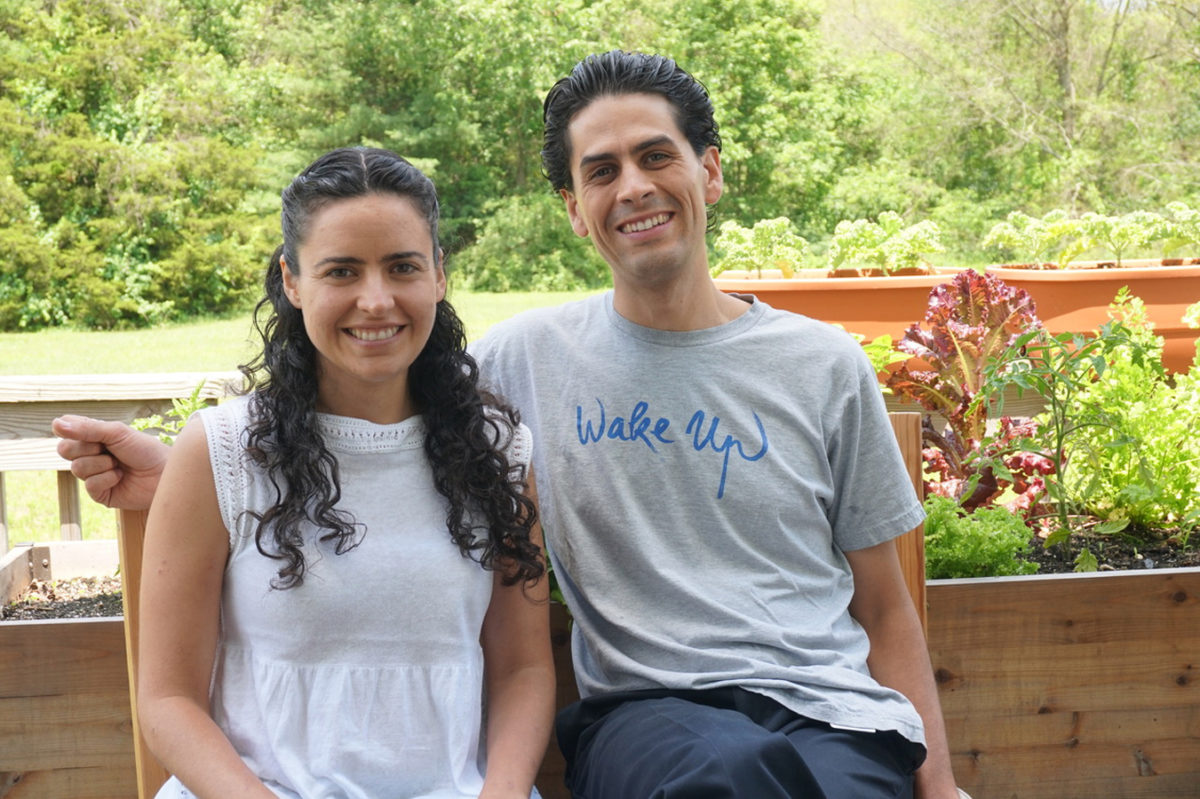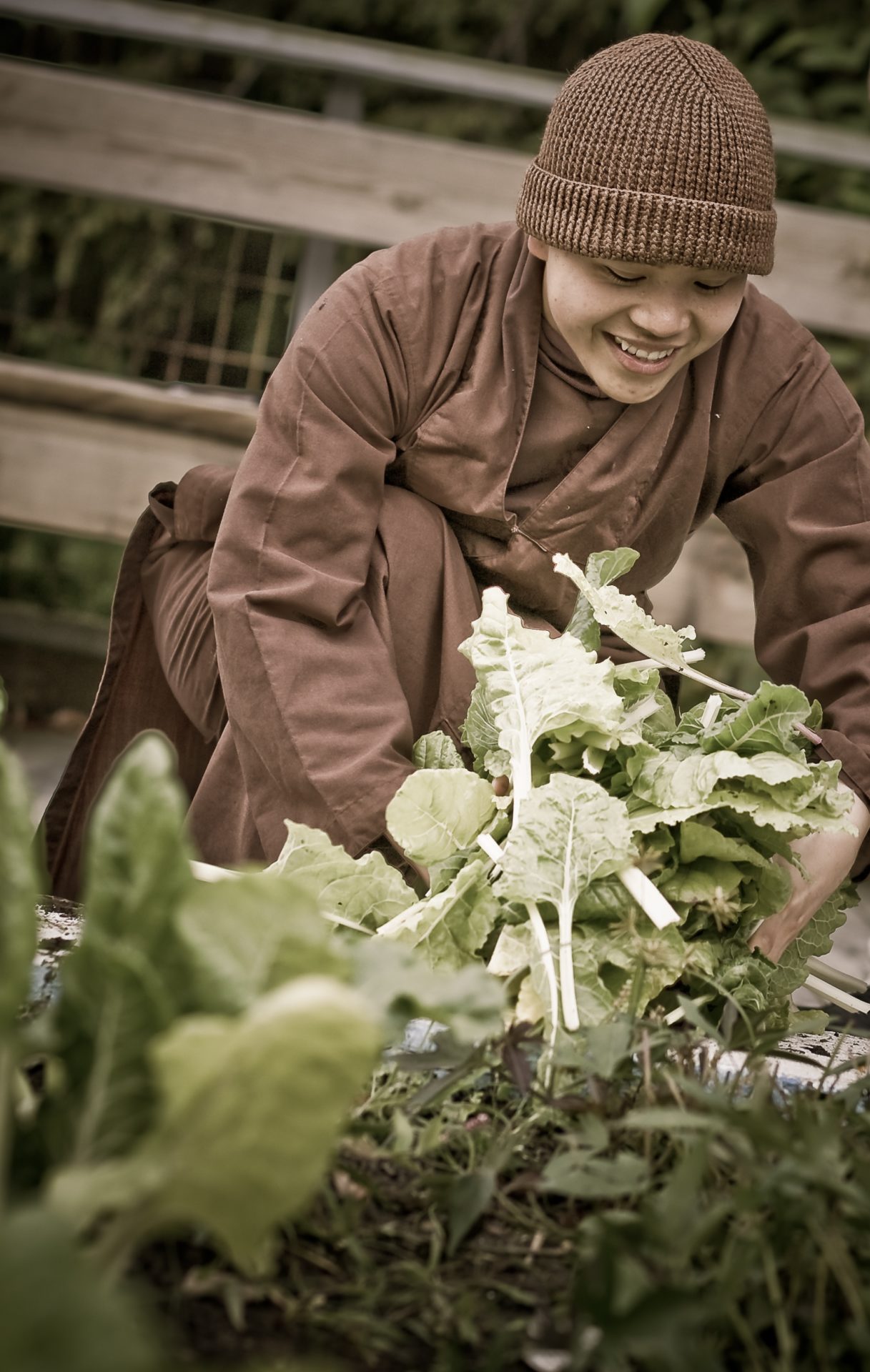By Julia Riley

Several years ago, while living and working in Mexico, Aurora Leon, MD, True Blue Swan, and Joaquin Carral, MD, True Blue Field, read The World We Have: A Buddhist Approach to Peace and Ecology by Thich Nhat Hanh. In the chapter “Diet for a Mindful Planet,” Thay cites a United Nations Food and Agriculture Organization report,
By Julia Riley

Several years ago, while living and working in Mexico, Aurora Leon, MD, True Blue Swan, and Joaquin Carral, MD, True Blue Field, read The World We Have: A Buddhist Approach to Peace and Ecology by Thich Nhat Hanh. In the chapter “Diet for a Mindful Planet,” Thay cites a United Nations Food and Agriculture Organization report, Livestock’s Long Shadow: Environmental Issues and Options, and comments that “switching to a vegetarian diet may be one of the most effective ways to fight world hunger and global warming.”(1) Wanting to do something to help people and the planet, Aurora and Joaquin became vegetarian.
Later, they read The China Study: The Most Comprehensive Study of Nutrition Ever Conducted and the Startling Implications for Diet, Weight Loss, and Long-term Health by T. Colin Campbell, PhD, and Thomas M. Campbell II, MD. Based upon the research results presented in that book, Aurora and Joaquin decided to try a vegan diet. Seeing their new diet’s beneficial effects on their own health, Aurora and Joaquin felt a responsibility as doctors to give their patients information about plant-based eating. As their patients’ diets became increasingly plant based, Aurora and Joaquin saw beneficial effects on their patients’ health as well.
Aurora and Joaquin currently live in Connecticut and work at a community health center. Eighty percent of the patients are of Latin American origin. Joaquin asks patients what their Latin American ancestors ate. “They say, ‘My grandparents ate potatoes and beans, and they lived to 100.’” He encourages patients to tap their ancestral roots and eat wholesome traditional foods such as potatoes, beans, rice, and tortillas.
Through the Physicians Committee for Responsible Medicine’s online program Vegetariano en 21 Días—the Spanish-language version of the 21-Day Vegan Kickstart—Aurora and Joaquin have helped thousands of Spanish-speaking people around the world experience the health benefits of a plant-based diet. Program participants receive daily emails with recipes, videos, and advice from doctors and celebrities. Joaquin says he and Aurora provide such information “because we love it, and it’s our passion.”
Aurora describes the health benefits of a plant-based diet as “not taking toxins in, giving the body antioxidants and fiber, and letting the body heal itself.” Such a diet, she and Joaquin say, can help people to bring their blood pressure, cholesterol, and weight to normal levels, and to avoid or reverse some of the leading causes of death, including some types of cancer and diabetes.
Aurora recently ran two thirty-mile races and one fifty-mile race. She enjoys growing vegetables and making them into fuel for her long-distance running. She says this process reminds her of Joe Reilly’s song “Little Tomato,” in which the tomato provides energy for the singer and the song.
Joaquin enjoys nourishing his own well-being by eating a plant-based diet. He also enjoys contributing to others’ well-being by encouraging them to eat a plant-based diet. “One of my biggest joys is when I see my patients get better,” reflects Joaquin. “Happy patients make happy doctors.”
1 Thich Nhat Hanh, The World We Have: A Buddhist Approach to Peace and Ecology (Berkeley: Parallax Press, 2008), 23.
Julia Riley, Joyous Awakening of the Heart, is a writer, a vegan, and a person who works for peace, human rights, animal protection, and environmental sustainability. She practices with Hummingbird Sangha in Orange County, California, and with the Earth Holder Sangha. She is an Order of Interbeing aspirant.

